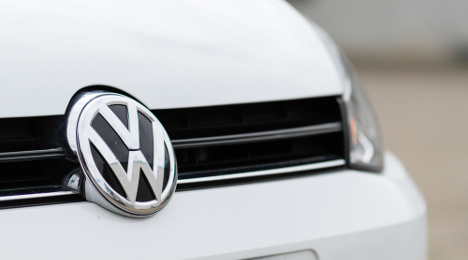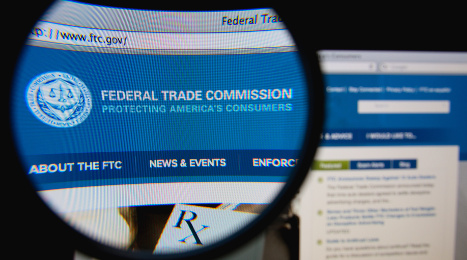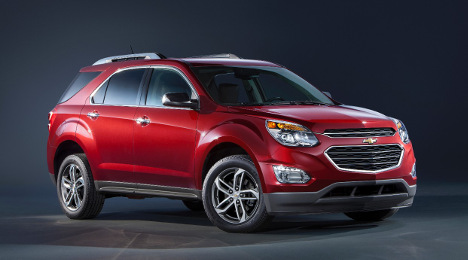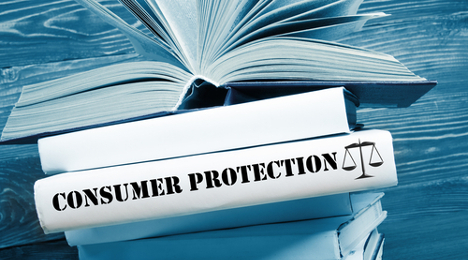As one industry observer put it, Volkswagen dealers might be working within a “fairly sketchy framework” on how to handle about 500,000 diesel vehicles with compromised emissions systems the automaker has agreed to potentially buy back through various means based on negotiations brokered between the OEM and federal regulators.
A deadline-mandated preliminary agreement came to light on Thursday after former FBI director Robert Mueller served as moderator of the negotiations mandated by a U.S. District Court judge between Volkswagen and several federal agencies, including the Department of Justice, the Federal Trade Commission and the Environmental Protection Agency.
“A federal judge’s blessing of Volkswagen’s framework of a plan to take care of its customers is a long-awaited first step, but much more work needs to be done to flesh out the details in the coming months. Indeed, it is a fairly sketchy framework at this point,” Autotrader senior analyst Michelle Krebs said in comments sent to the media, including Auto Remarketing.
“Meantime, Volkswagen customers will have to stay patient a bit longer until all of the details of the compensation deal are hammered out,” Krebs continued. “Then they will have to carefully weigh all of their options, which include having Volkswagen buy back their cars, have them repaired if that is possible, or return their lease cars.”
Should all owners of the VW diesel models included in the controversy decide to give up their units, the impact in the wholesale market is difficult to project. That’s the assessment shared by ADESA chief economist Tom Kontos when Auto Remarketing reached him on Friday.
“There’s a lot of uncertainty as to how many cars will actually enter the wholesale channel again as a result of this as well as what corrective measures have to be made to the vehicles before they can be remarketed,” Kontos said.
To recap the situation, Kelley Blue Book again listed the vehicles included in the flap that could force VW to spend as much as $7.3 billion if the automaker must buy back all the units:
Generation 1:
2009-2014 VW Jetta Sedan and Jetta SportWagen TDI
2010-2014 Golf TDI
2012-2014 Beetle TDI
Generation 2:
2012-2014 VW Passat TDI
Generation 3:
2015 Jetta TDI
2015 Golf TDI and SportWagen
2015 Passat TDI
2015 Beetle TDI
“The consumers will not have to elect which option to pursue until the consumer has had the opportunity to fully evaluate the details of each option. There is nothing for the consumer or their counsel to do until they receive the actual formal notice,” U.S. District Judge Charles Breyer said when he presided over Thursday’s proceedings marking the deadline for VW and regulators to arrive at a “concrete” plan.
According to the transcript of the proceeding posted by the court, Breyer commented about how much work remains to rectify the situation involving VW and this emission controversy.
“I think it's worthy of further emphasis, is that the fact that there is confidentiality in the negotiation of the agreements in no way is intended to suggest that the public and interested parties will not have an opportunity to review and comment on any proposed agreement,” the judge said.
“I find it a disservice to have information about where people are in terms of negotiations sort of floated out there, which these consumers believe are probably the terms of any final agreement,” he continued. “It doesn't serve them well. It gives them some concern. It gives them some suggestion that perhaps maybe their particular concerns won't be addressed. And that doesn't further either the settlement process, nor does it further the decision-making processes that they themselves will have to be engaged in, in a determination of whether or not a settlement is appropriate for them.”
Krebs touched on a thought that VW franchised dealerships and managers with these diesel units or perhaps any vehicle from the brand might be thinking.
“The next big question will be do Volkswagen customers think the proposed compensation and repairs are adequate and will potential customers feel confident enough to put Volkswagen on their shopping list,” she said.
In a statement, VW made a pledge to rectify what Krebs mentioned.
“Volkswagen is committed to earning back the trust of its customers, dealers, regulators and the American public. These agreements in principle are an important step on the road to making things right,” the automaker said.
More legal wrangling
During Thursday’s court proceeding, representatives from the Justice Department and the FTC mentioned that their investigations of VW remain ongoing and more developments could be ahead.
Furthermore, state attorneys general also are awaiting their turn to bring charges against VW.
“The agreement in principle reached by certain parties to the Volkswagen litigation in federal court does not in any way resolve the consumer and environmental penalty claims of the states, or the states’ claims for injunctive relief,” New York attorney general Eric Schneiderman said.
“The multistate coalition — led by New York and the states of Connecticut, Massachusetts, Oregon, Tennessee, and Washington — continues to vigorously investigate Volkswagen’s misconduct, and will aggressively pursue the recovery of substantial penalties and other appropriate relief,” Schneiderman continued.
Despite the legal storm still impacting the OEM, Volkswagen lead counsel Robert Giuffra sounded upbeat when he made his statement during Thursday’s court proceeding.
“I’d like to first thank the court and director Mueller for all you’ve done to promote this process,” Giuffra said according to the transcript. “There’s nothing like a deadline to focus persons’ attention. We’re not aware of another (multidistrict litigation) that's moved as quickly as this one. I think we first met in December, and now we're at this point four months later. And I think that reflects that Volkswagen is committed to winning back the trust of its customers, its dealers, its regulators, and all Americans.
“And we think that these agreements are an important step forward on the road to making things right,” he continued. “And, as your honor indicated, these agreements and the settlements that we hope will result will compensate fully all customers and remediate all environmental issues. So we think they’re good for consumers, they’re good for the environment, and they’re good for Volkswagen.”
Proposals now are sitting before committees within both the New York Assembly and Senate that would restrict the use of license plate recognition technology only for law enforcement outlets, not for private businesses such as repossession agencies that might be involved in the recovery process for an auto finance company.
Action in the Empire State’s lower chamber started first as Assemblyman Jeffrey Dinowitz introduced bill No. A5233. What was first read in January then was modified in February and forwarded on to the Assembly Standing Committee on Consumer Affairs and Protection, which Dinowitz chairs.
The Assembly measure would prohibit businesses and individuals from using automatic license plate readers and create guidelines for the use of such technology by law enforcement agencies in New York. Should there be a violation, the proposal indicated the punishment would include imprisonment of no more than 15 days, a fine of no more than $1,000 or both.
Dinowitz’s proposal also said a state or local law enforcement agency may use LPR readers and data for information held by the Department of Motor Vehicles, the National Crime Information Center and the FBI for only purposes such as:
— Outstanding parking or traffic violations
— Violation of vehicle registration requirements
— A vehicle in violation of inspection requirements
— A stolen vehicle or stolen license plate
— A vehicle registered to an individual for whom there is an outstanding default or arrest warrant for felony charges
— A vehicle associated with a missing person
Then last week, New York state Sen. Brad Hoylman unveiled bill No. S7245, which contains language nearly identical to what has been introduced in the Assembly. The Senate measure now is in front of the upper chamber’s Consumer Protection Committee.
It’s a September evening at Epcot in Florida.
In a virtual reality theater, of sorts, park patrons sit in what can best be described as large ski lifts.
The IMAX screen in front of them displays rolling video of California landmarks, as the contraption moves to reflect what is being shown on the screen and to simulate hang-gliding over the Golden State — all while “smells” of the landscapes are piped into the room.
These Disney World visitors were experiencing virtual reality, not necessarily a new phenomenon, but one that may have some legs for car dealers and makers.
VR has been around for decades, says Pat Hadnagy, who is executive director of VR product development and strategy of EVOX Images. And many consumers have become acclimated to VR through travel, gaming and 360-degree videos, he says.
His company, for one, provides automotive stock photography, 360-degree auto imaging, build-to-order auto content solutions, and in recent years has also moved to the virtual reality space.
Lately, VR has been picking up traction in the car business, an industry in which Hadnagy sees great potential. Including the used-car side of the market, he said.
“When it comes down to used vehicles — and probably, maybe even more specifically, CPOs — we feel that being able to experience a vehicle from a car research perspective, to be able to see what a certain type of vehicle is, a certain make and model, body style of a vehicle is, in VR is much more immersive and impactful than just looking at images on car,” he said.
“So, from the research perspective of the car-buying experience, even for used vehicles, the fact that we have been capturing our content, our regular automotive image library content, since model-year 2000, and now on the VR side since January of 2015, our library and our growing VR library will only continue to support those levels of research activities,” Hadnagy said.
“And when it comes down to CPO, specifically, knowing that many of those have manufacturer warranties, the wear-and-tear on those is a variable that we can’t necessarily account for, but the make and model, year, type is something that we could certainly demonstrate, and can help easily persuade a consumer towards one vehicle over the other.”
Editor's note: This is an abridged version of a more comprehensive feature on virtual reality that will appear in the May 1 Innovation Issue of Auto Remarketing.
Federal regulators not only are suing Volkswagen; now members of its franchised dealer network are taking action.
Three family-owned Volkswagen dealers filed a class action against the automaker on Wednesday stating that the OEM intentionally defrauded dealers by installing so-called “defeat devices” in its diesel vehicles, and separately carried out a systematic, illegal pricing and allocation scheme that favored some dealers over others and illegally channeled financing business to the captive finance arm VW Credit.
Hagens Berman is representing three Volkswagen dealerships owned by Ed Napleton, who with his family have been involved in the business in the Chicago area for three generations.
The lawsuit, filed in the U.S. District Court for the Northern District of Illinois, stated that in the midst of VW’s “Dieselgate” scandal, in which it admitted to installing an illegal “defeat device” emissions-cheating software in more than 550,000 U.S. diesel vehicles, the automaker’s affiliate in charge of its dealer network withheld all information about the scandal from current and prospective dealers, even though it was aware of the issue since at least as early as 2014.
The suit goes on to say that VW’s deception, coupled with the drop in value of diesel vehicles, the inability of franchise dealers to sell diesel vehicles and the loss in value of the VW brand delivered a “devastating” blow to dealers’ profits and the value of their franchises.
“What is really discouraging and led me to file this lawsuit is that Volkswagen has wholly failed to respond to dealer concerns in a substantive manner,” Ed Napleton said. “It has talked for months about multiple plans, but done nothing and left us dealers in the red, and in limbo.”
In a message to Auto Remarketing, VW said, “Volkswagen is reviewing the complaint. The company is committed to resolving the U.S. regulatory investigation into the diesel emissions matter as quickly as possible and to implementing a solution for affected vehicles, as we work to earn back the trust of our customers and dealers and the public.”
Wednesday’s developments arrived only about a week after the Federal Trade Commission charged that Volkswagen deceived consumers with the advertising campaign it used to promote its “clean diesel” VWs and Audis, which the regulator said Volkswagen fitted with illegal emission defeat devices designed to mask high emissions during government tests.
The FTC is seeking a court order requiring Volkswagen to compensate American consumers who bought or leased an affected vehicle between late 2008 and late 2015, as well as an injunction to prevent Volkswagen from engaging in this type of conduct again.
“The challenges facing VW now include legal action initiated by its own dealers,” Kelley Blue Book senior analyst Karl Brauer told Auto Remarketing when learning of the latest suit. “The scope of the issue hasn’t yet stabilized even as VW works to finalize a solution.
“With multiple deadlines looming in the next few weeks, a resolution should surface soon, but it’s apparently too late to satisfy dealers who feel they’ve suffered excessively as a result of the ongoing diesel stop-sale order,” Brauer added.
During the same span mentioned in the FTC matter, this dealership lawsuit stated Volkswagen also allegedly forced franchise dealers into a floorplan financing discount system conducted by VW Credit — a company wholly owned by the OEM — in what the suit called an “incestuous relationship” that put dealers that declined to use the captive at a “competitive disadvantage.”
“For VW dealers — many of which are small, family owned franchises — ‘Dieselgate’ amounts to a classic ‘pump and dump’ operation, in which VW exploited the CleanDiesel eco-friendly market that it helped create, boosting the price of entry and continuation in the market for VW franchises,” said Steve Berman, managing partner of Hagens Berman.
“All the while, VW withheld information about the impending Dieselgate fiasco, and left dealers to fend for themselves as the scandal unfolded,” Berman continued.
The Napleton family is certainly no small company in the franchised dealership segment.
Ed Napleton’s father's and grandfather's business grew from a single Buick service station to several franchises in and around Chicago.
Five of Francis Napleton’s eight children have worked their entire lives in the industry, and today the Napleton family operates more than 50 dealerships in five states.
“In a sickening display of VW’s disregard for its dealer franchisees, Napleton Automotive of Urbana was purchased after VW admitted its fraud to regulators, just three days before the ‘Dieselgate’ scandal made headlines. Yet Volkswagen withheld the truth and pushed the sale through, knowing well that Ed Napleton was purchasing a dealership that would almost immediately plummet in value,” Berman said.
In addition, the dealership suit accuses Volkswagen of abandoning its long standing “stair-step” programs to provide financial assistance to its dealers. While the automaker touted to dealers that it would replace them with new programs with equal or greater benefit, the suit indicated that VW’s abandonment of these programs, “was calculated to quell poor publicity as well as dealer outrage at Volkswagen Group of America conduct and was otherwise calculated to fraudulently induce its dealers and prospective dealers to continue to invest in the Volkswagen brand.”
The suit explained that just as consumers readily purchased what they thought were reliable environmentally friendly vehicles, franchised dealers built new showrooms and purchased new facilities, while heavily stocking lots with CleanDiesel vehicles, based on VW’s false marketing. In VW’s push of its CleanDiesel vehicles, the complaint states that it also “purposely and fraudulently induced its dealers to continue to invest in their dealership facilities and to otherwise benefit VW.”
Berman added, “Franchise owners are now left with lots full of CleanDiesel vehicles they are unable to sell, and these cars have suffered tremendous loss of value and take up inventory space and carrying costs.
“VW dealerships large and small have been at the mercy of an unethical corporation, much like the hundreds of thousands of owners across the country, and we believe it’s time to take a stand for their rights,” he went on to say.
The suit accused VW of engaging in a criminal racketeering enterprise with respect to the ‘Dieselgate’ scandal and violating federal law designed to protect dealers from unfair practices by vehicle manufacturers. It also accused VW of breaching state franchisee protection laws, breaching its franchise dealer agreements and defrauding its franchise dealers.
“Plaintiffs and the franchise dealer class have invested millions, collectively hundreds of millions of dollars in the Volkswagen brand,” the suit said. “But now the brand value has plummeted, sales of VW diesels have completely halted, and sales of all VW cars have plummeted.”
Now Volkswagen Group of America has another federal agency bringing actions against the automaker involving the diesel engine controversy.
In a court complaint announcement made on Tuesday, the Federal Trade Commission has charged that the OEM deceived consumers with the advertising campaign it used to promote its “clean diesel” VWs and Audis, which the regulator said Volkswagen fitted with illegal emission defeat devices designed to mask high emissions during government tests.
The FTC is seeking a court order requiring Volkswagen to compensate American consumers who bought or leased an affected vehicle between late 2008 and late 2015, as well as an injunction to prevent Volkswagen from engaging in this type of conduct again.
In a complaint filed in federal court, the FTC alleged that during this seven-year period Volkswagen deceived consumers by selling or leasing more than 550,000 diesel cars based on false claims that the vehicles were low-emission, environmentally friendly, met emissions standards and would maintain a high resale value. The cars sold for an average price of approximately $28,000.
“For years Volkswagen’s ads touted the company’s ‘Clean Diesel’ cars even though it now appears Volkswagen rigged the cars with devices designed to defeat emissions tests,” FTC chairwoman Edith Ramirez said. “Our lawsuit seeks compensation for the consumers who bought affected cars based on Volkswagen's deceptive and unfair practices.”
The FTC reiterated that it files a complaint when the agency has “reason to believe” that the law has been or is being violated and it appears to the commission that a proceeding is in the public interest.
“The case will be decided by the court,” the FTC said.
According to the FTC’s complaint, Volkswagen promoted its “clean” vehicles through a high-profile marketing campaign that included Super Bowl ads, online social media campaigns and print advertising, often targeting “environmentally-conscious” consumers.
For example, the regulator indicated Volkswagen promotional materials repeatedly claimed that its “Clean Diesel” vehicles have low emissions, including that they reduce nitrogen oxides (NOx) emissions by 90 percent and have fewer such emissions than gasoline cars. In fact, the FTC’s complaint stated that they emit up to 4,000 percent more than the legal limit of NOx — a dangerous pollutant that contributes to environmental harms and respiratory ailments.
The complaint went on to allege that Volkswagen also claimed that “Clean Diesel” vehicles met “stringent emission requirements,” were “50-state compliant,” and would maintain a high resale value. Yet, according to the FTC’s complaint, these claims were also false because without the illegally installed software, the “Clean Diesel” vehicles would not have passed federal emissions standards and the hidden defeat devices will significantly reduce the vehicles' resale value.
The FTC also charged that Volkswagen provided the means and instrumentalities for others to deceive consumers, and that installing the emissions defeat devices was an unfair practice.
The affected vehicles include 2009 through 2015 Volkswagen TDI diesel models of Jettas, Passats, and Touareg SUVs, as well as TDI Audi models. The suggested sale prices for the affected vehicles ranged from approximately $22,000 for the least-expensive Volkswagen model with a 2.0-liter engine to approximately $125,000 for the most-expensive Audi model with 3.0-liter engine.
The Commission vote authorizing the staff to file the complaint was 4-0. The complaint was filed in the U.S. District Court for the Northern District of California, San Francisco Division.
The development from the FTC comes on the heels of Volkswagen being given an April 21 deadline to submit a plan to federal regulators regarding how to fix or buy back vehicles included in the diesel emissions controversy; a situation that based on the estimates from Kelley Blue Book could cost the automaker more than $7 billion.
In a message provided to the media after the FTC made its announcement, Kelley Blue Book senior analyst Rebecca Lindland noted, “Every government agency that is even remotely impacted by this situation will sue to recoup what they consider damages to the agency’s constituents.
“There’s really no end in sight to this situation, and all Volkswagen can do is continue to cooperate and work on a fix,” Lindland added.
In a move that could assist collectors who leverage this technology, Equifax this week rolled out what it has dubbed PhoneReveal, a new tool that can help organizations that use auto-dialer systems preserve time, money and resources, while helping to gain better insight into contact records.
Recognized by customers as one of the industry’s most comprehensive resources for cell phone, landline and Voice over IP (VoIP) contact information, Equifax highlighted PhoneReveal can provide coverage on more than 95 percent of all wireless numbers in the United States with many customer tests achieving a 99 percent or higher match rate on all valid U.S. numbers.
Unlike other tools that obtain phone information from various sources and deliver probable information or scores, Equifax explained PhoneReveal can provide information collected directly from carriers, helping to avoid ambiguity or unnecessary data aggregation. PhoneReveal can help minimize wrong-party contacts by providing users greater lead time on recycled phone numbers as compared to other industry tools.
Equifax senior vice president of product management John Cullerton pointed out that other market products many not identify changes in number ownership until that number has already been associated with another party. Cullerton insisted greater lead time can equal better overall dialer program management and more current information.
“Recent regulatory fines and penalties have soared as high as $75 million for non-compliance with the Telephone Consumer Protection Act (TCPA),” Cullerton said.
“With such high penalties, PhoneReveal is an ideal solution because it delivers timely alerts about phone number types to help businesses distinguish mobile, landline or VoIP numbers when contacting individuals, while allowing for faster streamlining of operational efficiencies,” he continued.
Equifax indicated PhoneReveal can be an integral tool in a company’s TCPA strategy as it can work across multiple business functions that use auto-dialers including marketing, account management, debt recovery and more. This potential can give businesses direct, anytime access to updated phone contact information, including details such as number type, such as mobile, landline or VoIP; deactivation dates; porting status; validity of number; and country code.
Upon request, PhoneReveal also can include complementary lean Six Sigma-based program support to help customers further strengthen programs such as portfolio management, systems of record, customer contact practices and more.
Perhaps the gauntlet has been thrown by the Federal Trade Commission about claims automakers and dealerships make when it comes to promoting their certified pre-owned vehicles.
Jessica Rich, director of the FTC’s Bureau of Consumer Protection, offered a strong statement on Thursday during a conference call following an announcement about General Motors, Jim Koons Management and Lithia Motors all agreeing to settle separate administrative complaint allegations.
“These are three actions, but we really do hope these actions send a signal to the marketplace as a whole about the need to disclose unrepaired safety recalls, especially when you’re making bold claims about inspections that you’re undertaking or the safety that your used cars may have,” Rich said.
“We really want it to have widespread effects,” she continued.
The FTC indicated each company touted how rigorously they inspect their vehicles, yet failed to disclose that some of the used models they were selling were subject to unrepaired safety recalls.
“These actions stand for a simple proposition. Companies should not mislead consumers shopping for cars, especially when it comes to safety,” Rich said.
“Although dealer inspections can benefit consumers, and manufacturers and dealers may advertise these inspections, their ads can’t overstate the safety assurances that these safety inspections provide or deceive consumers about recalls and other important safety issues,” she continued.
“These cases also underscore the FTC’s continued commitment to protection consumers from deceptive advertising in the auto marketplace,” Rich went on to say.
Neither GM nor Koons nor Lithia faced any financial penalties in conjunction with the settlements. However, Rich pointed out the proposed consent orders remain in effect for 20 years. Each violation of such an order may result in a civil penalty of up to $16,000.
“In these cases, actions do not involve any fines or money remedies. However, if the companies do violate the orders, they could be liable for substantial civil penalties. We do monitor our orders very closely and we do take action when companies violate them,” Rich said.
“And violations can be calculated in various different ways. If a large company with many customers is engaged in violations, it could come to a very large number indeed,” she went on to say.
GM’s response
GM acknowledged in a filing with the Securities and Exchange Commission last June that the automaker received notice of an investigation from the FTC concerning certified pre-owned vehicle advertising where dealers had certified vehicles allegedly needing recall repairs.
On Thursday, GM spokesperson Jim Cain told Auto Remarketing, “We made changes to our certified pre-owned marketing program last year to address the FTC’s concerns, and we are pleased with the proposed resolution of the matter.”
Lithia officials declined to comment about the development when reached by Auto Remarketing on Thursday. Efforts to contact Koons for comment weren’t successful.
More FTC action ahead?
Rich indicated she couldn’t divulge how many more investigations in the CPO space are ongoing. But she acknowledged how the volume of vehicles needing recall repairs makes it possible that the regulator could be handing out more actions similar to what involved GM, Koons and Lithia.
“We don’t have an exact count but we do believe from the public reports we’ve seen that there may be millions of cars with unrepaired safety recalls that are being sold today,” Rich said.
“While we can’t comment on other investigations that are underway because they’re non-public, you may very well see other actions in this area,” she continued.
Rich reiterated Thursday’s announcements “are just part of the larger program we have to protect consumers in the automobile marketplace,” noting that the FTC has been involved in 40 cases to date
“This case addresses deceptive claims and failure to disclose critical information that would ensure the claims aren’t deceptive,” Rich said.
“Here, the companies made broad claims about rigorous inspections that involve safety without disclosing the potential existence of unrepaired safety recalls in the inventory of the cars they were selling,” she continued. “That, we allege, was deceptive.
“That’s why the companies are compelled under the orders to make prominent disclosures to consumers about the recalls,” Rich went on to say.
Businesses in the automotive space have to spend quite a bit of time familiarizing themselves with laws and regulations to maintain a compliant business within the regulatory environment in which they operate.
How they are allowed to operate depends heavily on how regulators determine to interpret and enforce legislation.
With hot topics like autonomous vehicles on the docket for future discussions, it would not be surprising to see concern about how future technologies are going to impact the automotive business overall and, eventually, your own business.
What will you have to keep an eye out for? How much time and money will you have to invest to stay off the wrong person’s radar?
This is where the Federal Trade Commission’s recent Auto Regulation Workshop comes in. Looking ahead at the future automotive landscape, panels of auto industry peers and experts gathered together in Washington on Tuesday to discuss various topics involved with automotive distribution and regulation.
One key topic discussed toward the end of the day of panels was future trends, where FTC moderator Ellen Connelly proposed to a panel of automotive industry experts: how would you advise regulators who are trying to figure out how to regulate emerging technologies? How should they balance consumer interests and consumer protection without hindering innovation?
National Automobile Dealers Association president Peter Welch had simple, matter-of-fact advice for regulators deciding how to handle regulating future automotive technologies.
“Keep an open mind, listen to all the parties, and do what they’re elected to do: make good public policy,” Welch said.
Bryant Walker Smith, an assistant professor of law at the University of South Carolina, went a bit further in depth with his advice.
“The details matter but the broader social context determines how many of those details will be interpreted,” Smith said. “So states need to begin by closely auditing their existing laws, identifying all of the potential obstacles and impediments to particular technologies, in consultation with the developers, who should be doing the same thing.
“But in addition to that detailed approach, rather than the superficial approach we’ve sometimes seen from state legislatures with respect to automated vehicles and other technologies, both the public sector and the private sector needs to build a public safety case for these technologies,” he continued. “Start talking about what ‘safety’ means, how that safety will be measured, and how that safety will be monitored for the lifetime of the systems.”
Robbie Diamond, the founder, president and chief executive officer of Securing America’s Future Energy, recommended that regulators not get too caught up in how to prevent mistakes with new technologies like self-driving vehicles, and, instead, allow them to be tested and learn from the mistakes.
“There will be problems. There will be hiccups. There will be bumps. All of that is true,” Diamond said. “But let us allow consumers to have an opportunity. Let’s allow these companies, both automakers and new entrants, to get their products on the road, see how it works, and then come in afterwards and make sure that if something goes wrong to deal with it. But not to think that we can prejudge while sitting in Washington or while sitting in any state capital. It’s laughable (to think) that we could.”
Uber’s head of policy development, Ashwini Chhabra, gave advice from his former position as a taxi regulator to advise future regulators to learn as much as possible about the new automated technologies, as they are developed and released, to make sure their regulations fairly reflect the abilities and limitations of the technologies they overlook.
“A couple of things that I think are necessary in fashioning good regulation, and I say this as a former taxi regulator, is that there is the need to be an expert in your area where you are regulating,” Chhabra said. “Which means staying current with new technology trends and being nimble. And regulation is often incremental, much to the frustration of the people who are innovating in an industry, but that can work so long as a regulator then keeps up and the process is such that it allows for regular and frequent updates. Because the technology is just moving that fast.
“I think sometimes we have this rep(utation) of being opposed to regulation (as innovators in the industry). Nothing is further from the truth,” he continued. “We advocate for sensible regulation, it’s just that the process takes so long and there’s entrenched interests and so forth, but whether it’s auto distribution, whether it’s permitting new vehicle technology, whether its regulating for-hire services, it’s clear that all of these sectors require a greater degree of expertise that regulatory agencies have historically not had or have not been able to stay current in.”
The American Automobile Association’s director of federal relations, Avery Ash, resonated with Chhabra’s comments, and urged regulators to learn as much as possible about the new technologies before judging them.
“Whether you’re a federal or state legislator, it begins with educating yourself about the technology and then asking smart questions,” Ash said. “Figuring out the right questions to ask and to identify where or if regulation or legislation is important. Then it really comes down, from our standpoint, it’s back to those principles: if you’re thinking about it from a consumer perspective, it’s about transparency and understanding the technology, it’s about security and understanding the safety behind it, and then it’s promoting consumer choice. I think, with all those three, that’s how you really realize the benefits of this technology.”
While the federal government has legislative updates on its mind in anticipation of future groundbreaking technologies, like autonomous vehicles, various consumer protection agencies are getting in on the conversation in hopes of making changes for consumer safety.
In a formal petition, created by Consumer Watchdog, the Center for Auto Safety and Joan Claybrook (former NHTSA administrator), the collective urges NHTSA to mandate safety features, instead of allowing the industry to self-regulate features.
Saying that many newer technologies may not be included in less-expensive vehicles, to cut costs, unless mandated by the government, the petition seeks support from NHTSA to require “Automatic Emergency Braking” (a set of three technologies that combine radar, LIDAR [reflected laser light], and cameras to prevent collisions) as standard equipment.
Here’s a summary of the technology, as listed by the consumer advocates:
- Forward Collision Warning alerts a motorist (via audio or visual signals) that a collision with a car in front is imminent.
- Crash Imminent Braking intervenes when the driver does not respond to the Forward Collision Warning; it automatically applies the brakes to prevent a collision or reduce the vehicle's speed at impact.
- Dynamic Brake Support applies supplemental braking when the braking applied by the driver is insufficient to avoid a collision.
NHTSA announced in November that automatic emergency braking, or AEB, will be added to its 5-Star Rating System as a recommended safety technology for model-year 2018. While it is not currently mandatory equipment, NHTSA and the Insurance Institute for Highway Safety said in November that 10 major vehicle manufacturers have committed to making AEB a standard feature on all new vehicles.
FCA US names safety advocate & rolls out 'Recall Central'
In other safety-related news, FCA US LLC announced last Friday that it has appointed Kristen Kreibich to fill the new role of safety advocate.
According to the company, Kreibich will be tasked with the role of “enriching the safety culture” at FCA US, which includes being responsible for promoting greater awareness of vehicle and occupant safety, both internally for FCA employees and externally with regulators, industry observers and trade associations.
Her experience includes over 20 years of manufacturing, regulatory and safety involvement. She previously served as the manager of vehicle safety planning for FCA US.
“Because of my background, I am passionate about vehicle safety,” Kreibich said. “It’s a topic of vital importance and my mission will be to ensure it remains top of mind, universally. Because we are all stakeholders — my colleagues here at FCA US, my regulatory counterparts, third-party ratings groups, dealers and especially our customers.”
The safety advocate position is being added to FCA’s Vehicle Safety and Regulatory Compliance organization, or VSRC.
“Everyone is a safety advocate at FCA US, because safety considerations are baked in to every component of every product we make,” said Mike Dahl, FCA’s head of VSRC. “But Kristen’s appointment is the embodiment of this mindset. She is our new safety ambassador.”
FCA also announced Thursday the impending implementation of its “Recall Central,” a new Internet portal aimed at consolidating recall campaign information for dealers to better assist their customers. The company also says it has more than doubled the number of professionals it has assigned to its vehicle-safety organization to help identify potential defects and respond to them quicker.
FCA and NHTSA are currently working together, along with others in the industry, to encourage customers to respond to recall notices and increase their completion rates as well as improve the customer service provided to them.
Audi adds new government affairs roles
Audi also announced last Friday that Brad Stertz will take on the role of director, Audi Government Affairs, while Tom Baloga has joined the company as senior director, Audi Government Affairs and head of a new Sacramento office.
The company says that both Stertz and Baloga will represent Audi’s interests in a range of topics, including automated vehicle deployment, electric vehicles and charging infrastructure, connected vehicle technologies, safety, cyber security, emissions regulations and trade.
“Technology is transforming the car business and nowhere is that happening more rapidly than in America,” said Scott Keogh, president at Audi of America. “We intend to stand at the forefront of this revolution. These two new representatives will put Audi in the middle of decisions shaping the future.”
To read more about the current dialogues going on in Washington between the automotive industry and legislators, including commentary on vehicle safety and future automation, read our previous story here.
January has been a busy month for the U.S. government in regards to its transportation system and the automotive industry.
The former announced its long-term plans to bolster its plans to propagate vehicle safety initiatives as well as begin a 10-year action to invest in safe vehicle-automation projects.
While speaking at the Automotive News World Congress on January 12, NHTSA administrator Mark Rosekind made a request to the automotive industry, asking for a more proactive approach to vehicle safety in light of the current era of recalls that it is still suffering.
Rosekind further requested that the auto industry and the administrators do their best to cooperate.
“The era of big recall is not a sign of progress. Record civil penalties are not a metric of success,” Rosekind said. “NHTSA is truly successful not when we catch safety violations and hand down penalties, but when we work together with industry to prevent that kind of crisis from ever occurring in the first place.”
Later that day, during his final State of the Union address, President Barack Obama mentioned his intentions to invest in the nation’s transportation system as part of his budget proposal. Days later, on Jan. 14, U.S. Transportation Secretary Anthony Foxx revealed part of that proposal.
“We are on the cusp of a new era in automotive technology with enormous potential to save lives, reduce greenhouse gas emissions, and transform mobility for the American people,” Foxx said. “Today’s actions and those we will pursue in the coming months will provide the foundation and the path forward for manufacturers, state officials, and consumers to use new technologies and achieve their full safety potential.”
One key element outlined by Foxx is a 10-year, roughly $4 billion investment to assist in the development of safe vehicle automation, via real-world pilot projects. These projects would involve connected vehicle systems in designated corridors throughout the nation, working alongside “industry leaders” to put in place a common, multistate framework for the connected and automated vehicles to operate.
Saying that autonomous vehicles are now feasible and would have “the potential to save lives,” Foxx also unveiled policy guidance to update NHTSA’s 2013 preliminary policy statement on autonomous vehicles.
“NHTSA is using all of its available tools to accelerate the deployment of technologies that can eliminate 94 percent of fatal crashes involving human error,” Rosekind said. “We will work with state partners toward creating a consistent national policy on these innovations, provide options now and into the future for manufacturers seeking to deploy autonomous vehicles, and keep our safety mission paramount at every stage.”
The Department of Transportation is also committing to the following “milestones” for 2016, as listed by NHTSA below:
- Within six months, NHTSA will work with industry and other stakeholders to develop guidance on the safe deployment and operation of autonomous vehicles, providing a common understanding of the performance characteristics necessary for fully autonomous vehicles and the testing and analysis methods needed to assess them.
- Within six months, NHTSA will work with state partners, the American Association of Motor Vehicle Administrators, and other stakeholders to develop a model state policy on automated vehicles that offers a path to consistent national policy.
- Secretary Foxx encouraged manufacturers to submit rule interpretation requests where appropriate to help enable technology innovation. For example, NHTSA responded to an interpretation request from BMW confirming that the company’s remote self-parking system meets federal safety standards.
- When interpretation authority is not sufficient, Secretary Foxx further encouraged manufacturers to submit requests for use of the agency’s exemption authority to allow the deployment of fully autonomous vehicles. Exemption authority allows NHTSA to enable the deployment of up to 2,500 vehicles for up to two years if the agency determines that an exemption would ease development of new safety features.
- DOT and NHTSA will develop the new tools necessary for this new era of vehicle safety and mobility, and will consider seeking new authorities when they are necessary to ensure that fully autonomous vehicles, including those designed without a human driver in mind, are deployable in large numbers when they are demonstrated to provide an equivalent or higher level of safety than is now available.
Following these announcements, John Bozzella, the president and chief executive officer of Global Automakers, a Washington-based trade association and lobby group for various automotive companies, applauded Foxx’s vehicle safety and autonomy plans.
“Our members’ continue to make substantial investments in automated vehicle research and development,” he said. “This technology promises to bring significant benefits for improving personal mobility, vehicle safety, fuel efficiency, emissions and highway congestion. We are pleased the Agency has announced a plan to develop a model state policy to help remove the roadblocks to innovation that can occur with a patchwork of state legislative and regulatory requirements.
“The way in which policymakers address automated vehicles will have a profound impact on the way this game-changing technology can be tested and deployed, not only in a particular state but nationwide,” he continued. ”It is important that any policy is consistent and balanced so it not only reflects the current state of technology, but also is flexible enough to adapt as our industry continues to innovate.”
Stay tuned to Thursday's Auto Remarketing Today PM as we dive a bit further into other happenings in our nation's capital, including recent safety moves made by consumer advocates as well as a couple of manufacturer's new internal roles created in response to growing safety concerns.












